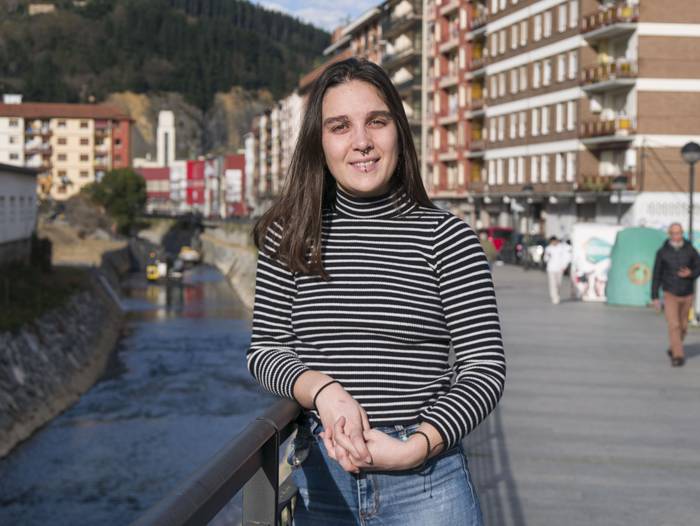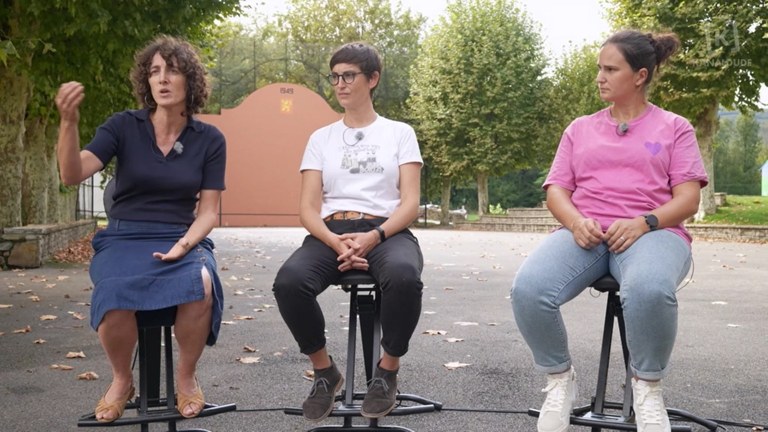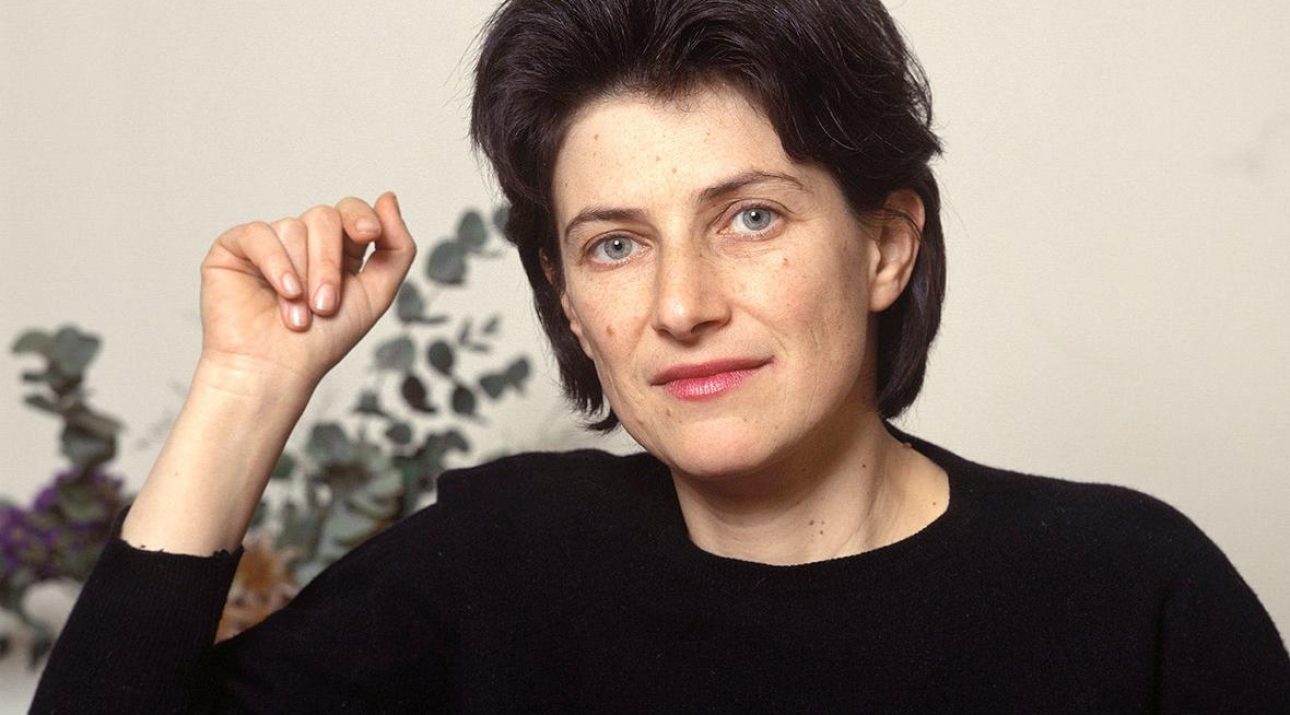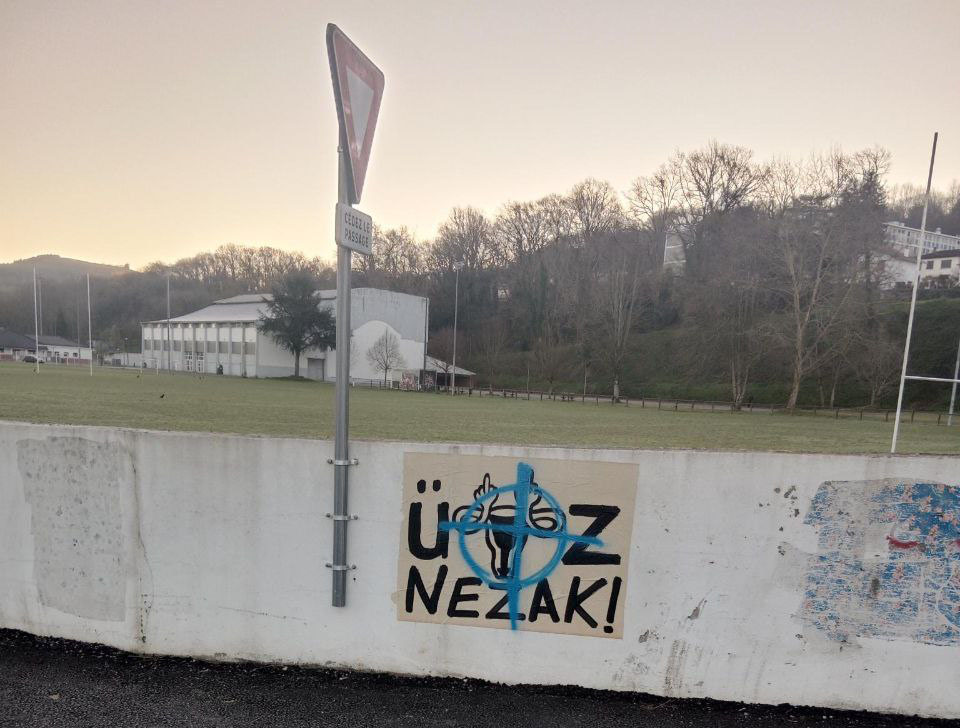"Men must return the privilege VIP card"
- He is a researcher, a professor and an activist who has spread feminism both in the streets and in the classrooms. He has developed his professional career in the GITE Society and in the Public University of Navarra (UPNA). It's all an excellent professor who tells us to look at the gender perspective glasses.
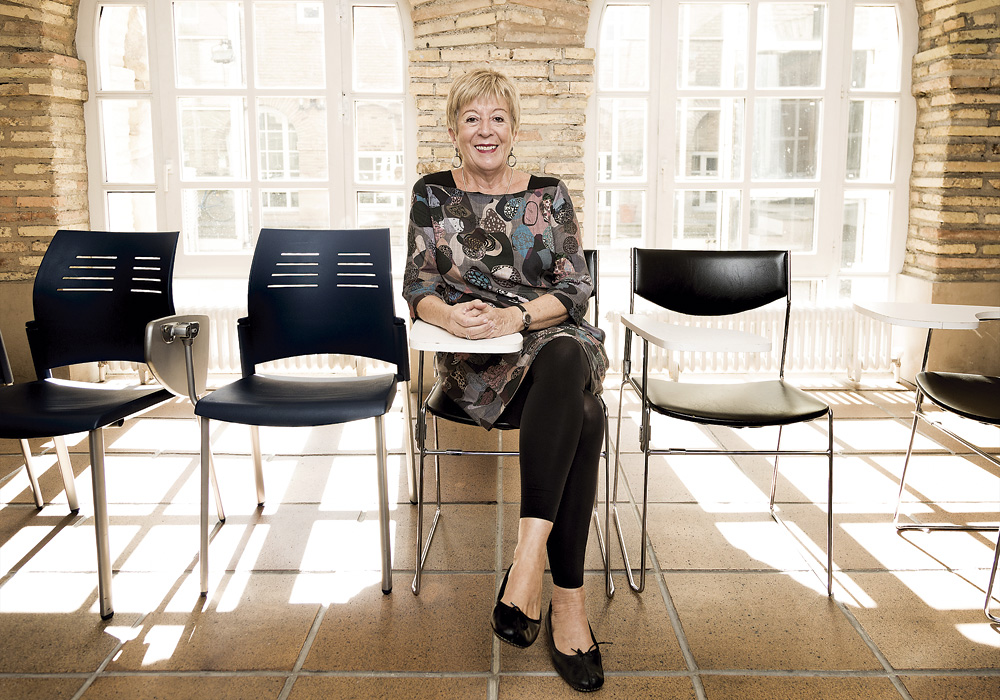
Soziologoa, ikertzailea, Nafarroako Unibertsitate Publikoko Gizarte Langintza graduko irakaslea eta GITE elkartearen sortzaileetako bat da. NUPen Generoan Espezializazioa Diploma sortu zuen. Familia eta Taldeekiko Esku-hartze Sozialeko Masterrean genero ikuspuntua bultzatu zuen. Martxoan Nafarroako Gobernuaren lehen Berdinna saria jaso zuen. Nazio Batuen Erakundeak Pekinen (Txina) 1995ean antolatutako Emakumeei buruzko Munduko IV. Biltzarrean izan zen.
How long have you been a feminist?
I studied the Sociology of Political Sciences section at the University of Deusto and started becoming aware of feminism in the 1970s. I only had one teacher in the last year and we were not appointed to any female researcher throughout the career. I realized something had happened. I knew there were many women who were making great contributions in the field of sociology, but they weren't talking or learning anywhere. My first paid job at the end of the studies was in the Humanities library of Pamplona, where I organized the humanities and social sciences section. It was very interesting, because there were very few bookstores here, and in addition, they gave me all the power to bring all the jobs I thought were right. We still didn't have a gender perspective, but we did have a big interest in all the feminist books. I left and participated in the creation of the GITE [Task Force for Social Research, IPES] in 1978.
For what purpose did the ITE launch?
We gathered together a group of professionals from different fields: lawyers, historians, economists, sociologists… Here, we thought there was a great gap in culture and research. The Opus University enclosure was just a closed enclosure and was a very conservative society. Following the model of the popular universities that were then known, we decided to do something like this here. So we created this social research group. The idea was to train people who could not go to university, especially workers, feminists, trade unionists and people who were in social initiatives. They had priority. The success was terrible. People didn't get into classrooms. We work with Marxism, feminism, environmentalism and sex education, as well as the history of Navarra, but framed in the context of Euskal Herria. On the other hand, our lawyers and economists advised the works councils and the unions, because at that time they did not have the resources they have. I gave gender perspective and issues about feminism. Basque classes were also taught. After all, we tried to offer everything that was called for in our society, which was changing rapidly.
What is the current role of GITE?
GITE has always adapted to the needs of the time. Many of the learning lines we launched have been received by other institutions and associations, such as the Public University of Navarra. Feminism, gender theory and the diffusion of women's work, for example, has remained for years. The Women's Library and the GITE Documentation Centre are a treasure trove. It was created in 1985 and is increasingly important. It brings together 15,000 works and is networking with all the other libraries in the same way as the Spanish State.
In this area, GITE has set up two very important initiatives: The International Film and Women Exhibition of Pamplona, which this year celebrates its 32nd edition, and the School of Feminisms, launched by my sister Silvia and which today has been taken over by the City Council of Pamplona in collaboration with GITE.
Apart from feminism, the section devoted to the analysis of the international socio-political situation and the defense of human rights is also working very quickly today in the institute.

At the Public University of Navarra she addressed the first lines of research with a gender and feminism perspective. For example, they defined the itineraries of impoverishment of women and pointed out that women are more impoverished than men. Why is this happening?
It has been shown that there are more poor women than poor men and that there is more poverty. The main reason is economic dependence. Some authors say that the origin is the same marriage. It is often observed that a woman unfolds or becomes without a partner, becomes impoverished. But that doesn't happen to men. Being the only parent and, in particular, a young adolescent, is considered in Europe as one of the most serious causes of poverty. It is teenage mothers who have bought all the tickets to embark on the path of poverty and exclusion. The women who separate are left with all the burden of the family. This, therefore, is an impoverishment of children. It can be said that it is marriage itself that impoverishes women and those who show divorce or impoverished separation. When they get married, women break the working paths, stay at home and, therefore, become impoverished. Some authors have put into figures these processes of impoverishment.
"The main reason for women's poverty is their economic dependence. Some authors say that the origin is the same marriage"
What valuation does it make of the advances in feminism?
Feminism has brought great social changes for women and for all of humanity. The most important are equal rights, the recognition of sexual and reproductive rights and the crisis in the patriarchal family. The existence of different family models is now recognized. Getting married is not the only way. We have not dissolved the patriarchal family, but we have changed a lot. The despriority of this family model is the only way to break the binomial dominating submission. That's the way to fight gender-based violence.
I believe in social change. The data are obvious and I am clear that we must continue to go down this road. Now 99 percent talk about feminism, that is, it's reached women of all social levels, not just middle- or upper-class women. I'm amazed. For five years the change has been brutal. We were before the demonstration on 8 March, and this year it was amazing, because for the first time a new concept of strike has been opened: the strike that unites the two jobs. If productive work and care work is paralysed at once, we stop everyone.
I think it is very important to see things in a positive way. I always tell young people to think about the changes that can happen in 30 years' time, because I've seen tremendous changes myself. These changes, however, have brought something else: What are we going to do with surveillance work? We have a right to higher education, women are more than men in college, and we have better results. However, our relationship with the labour market is very conflicting.
What are the challenges?
I will refer to the following six themes: maintenance of what was done; care work; gender violence; body and sexuality; sexual identities and options; and patriarchy.
The first and foremost thing is to keep the changes. If we relax, we could lose many of those achievements quickly. No one guarantees us that we can keep what we have achieved forever. The fourth and final International Conference on Women, organized by the United Nations, was held in 1995. More than 30,000 women participated. There have been no more meetings for fear, because they believe that if some issues were to be put on the table again, some countries would be left behind. We were really bad at accepting the rights of sexuality and body control. The Vatican and the Islamists in particular were very pleased with the victory of the Catholic Church. In the end, it was recognised that women’s rights are human rights, but hardly.
As far as care tasks and the world of work are concerned, we have entered the labour market, but without changing the structures of the system. Women have not neglected care work. Capitalism is interested in us doing that work. We do it for free, that's why we're always in worse condition than men, and that's why we don't get real autonomy. Care for people must be taken by the public authorities. For example, nothing can be done as long as men do not have the same mandatory paternity leave. The overall concept of the labour market must be changed. He's very male. There's no care work there, and that's not real. It's not a sustainable approach. Sociologist researcher María Ángeles Durán has measured the number of jobs that the public system should create to attend to all surveillance tasks. It would take 26 million jobs and there are currently 18 million people working in the Spanish state. Social production and reproduction are the two legs of social production.
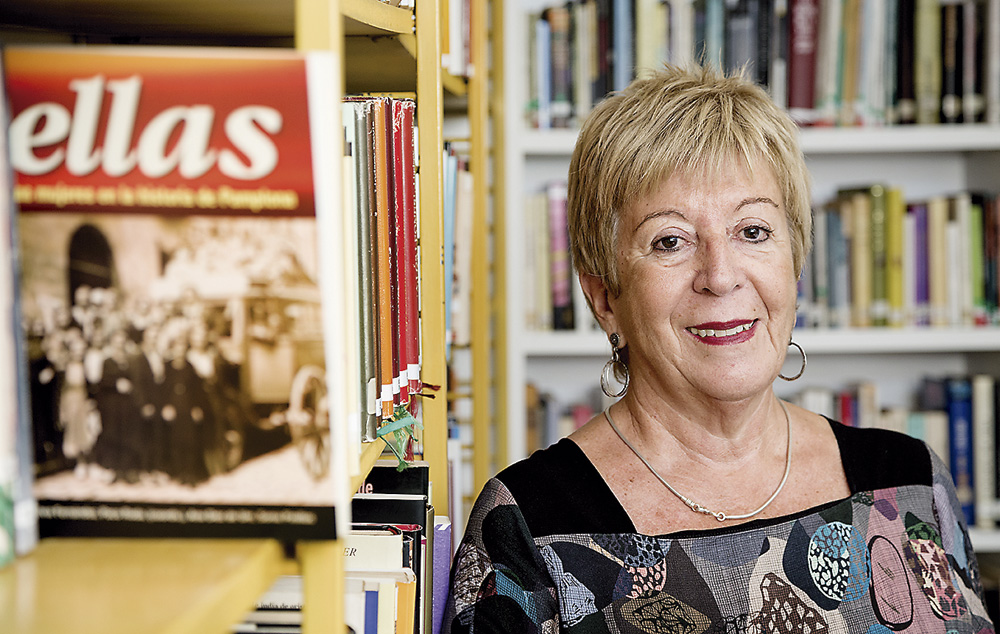
You want to highlight gender-based violence.
All systems based on inequality need a dose of violence to perpetuate that inequality. The patriarchal system protects itself from gender-based violence. As we move forward in rights, violence increases to “put women in place.” We are not working very well on this issue. In the period 2000-2015, 970 women were murdered in Spain. It is a war and not the war we have created.
Another challenge is the right to body and sexuality. It is a historic claim. Being able to live sexuality and move freely in the street, traveling… are our rights. The patriarchal judicial system and its laws do not stop protecting men and blaming women. It's terrible.
Recognition of different sexual identities and options. Do we also have a challenge there?
Much remains to be done. We must see, identify and disobey gender orders. They tell us how we should live femininity and masculinity. They tell us what we should like and what we should choose. We're moving ahead, but in society's supply of gender orders is still there. Most of my students were girls, for example, and it's no accident. Behind that is a gender order. Women seek in the public sector a projection of what we have always done in private, that is, care work. We are teachers, health workers or social workers. It's the result of gender orders. Faced with this, we must create the gender models we want, selecting and sewing the characteristics from the masculine and the feminine.
"I'd rather people show up for feminism, even if it's a little frivolous."
What about patriarchy?
Patriarchy is still there. We now have a democratic patriarchy, many rights have been recognised in theory, but we have glass ceilings. Patriarchy and capitalism are closely linked. We donate half of the Gross Domestic Product free of charge to capitalism. Capitalism is interested in maintaining patriarchy. Another donation is the wage gap, women give capitalism two months a year. It's a clover, and there's the problem. The central axis of the economy must not be to make money, but to ensure people’s well-being.
What should the role of men be in feminism?
You have to realize what patriarchy and capitalism are going to win and be willing to make change with us. Our feminism is not a question of equality, but of profound social change. He wanted to change the whole system and not only achieved equality. Men will lose privilege and have to see it clear. Luis Bonino says that men have a kind of VIP card to be always vigilant, to have clean clothes, prepared food… They don’t know who gave them, but he gave them. Well, men have to return the privilege VIP card.
Is it good or bad that feminism is fashionable?
I'd rather be fashionable than being persecuted. They often remain shallow, but in spite of everything, it seems to me that it is very important to accept on a massive basis some assumptions, even in this type of television programme. Unlike other social movements, feminism has often been persecuted, despised, insulted. It has not happened with trade unionism, for example. That's why I prefer people to leave, even if it's a little frivolous. Maybe I'm very optimistic, but I prefer that than hurting feminism.
Gozamen aparta bezain deskribatzeko zaila dakar, norbaiten hitzak irakurri edo entzun ostean, zera pentsatzeak: “Horixe zen neu aurreko hartan azaltzen saiatu nintzena!”. Idazlea eta itzultzailea da María Reimóndez, eta galegoz aritzen da, hizkuntza... [+]
Orain arte desgaituak ez diren pertsonekin lehiatu da Uharteko Ipar Eski Taldeko Eneko Leyun eskiatzailea (Iruñea, 1998). 2024-2025 denboraldian, lehenengo aldiz parte hartu du Adimen Urritasuna duten Pertsonentzako Iraupeneko Eskiko Espainiako Txapelketan. Urrezko... [+]
Joan den urte hondarrean atera da L'affaire Ange Soleil, le dépeceur d'Aubervilliers (Ange Soleil afera, Aubervilliers-ko puskatzailea) eleberria, Christelle Lozère-k idatzia. Lozère da artearen historiako irakasle bakarra Antilletako... [+]
Endometriosiaren Nazioarteko Eguna izan zen, martxoak 14a. AINTZANE CUADRA MARIGORTAri (Amurrio, 1995) gaixotasun hori diagnostikatu zioten urtarrilean, lehen sintomak duela lau urte nabaritzen hasi zen arren. Gaitz horri ikusgarritasuna ematearen beharraz mintzatu da.
Duela aste batzuk, gurean egon ziren El Salvadorko eta Kanarietako emakumeen eskubideen aldeko hainbat aktibista. Sexu- eta ugalketa-eskubideez eta eskubide horiek urratzeak emakumeengan dituen ondorioez aritu gara; hala nola El Salvadorren berezko abortuak izanda homizidio... [+]
Zuberoako ohiturei buruzko bi liburu ditut gogoan. Batek XX. mendean aritu izan diren 180 dantzari eta soinulari aipatzen ditu. Haien artean, emakumezkorik ez da agertzen. Besteak, pastoralei egiten die errepasoa eta hor emakumeak aipatu aipatzen dira, baina omisio esanguratsuak... [+]
1984an ‘Bizitza Nola Badoan’ lehen poema liburua (Maiatz) argitaratu zuenetik hainbat poema-liburu, narrazio eta eleberri argitaratu ditu Itxaro Borda idazleak. 2024an argitaratu zuen azken lana, ‘Itzalen tektonika’ (SUSA), eta egunero zutabea idazten du... [+]
Antifaxismoari buruz idatzi nahiko nuke, hori baita aurten mugimendu feministaren gaia. Alabaina, eskratxea egin diote Martxoaren 8ko bezperan euskal kazetari antifaxista eta profeminista bati.
Gizonak bere lehenengo liburua aurkeztu du Madrilen bi kazetari ospetsuk... [+]
Pertsona lodiek lodiak izateagatik bizi izan duten eta bizi duten indarkeriaren inguruan teorizatzeko espazio bat sortzea du helburu ‘Nadie hablará de nosotras’ podcastak. Cristina de Tena (Madril, 1990) eta Lara Gil (Fuenlabrada, Espainia, 1988) aktibista... [+]
Donostiako Tabakaleran, beste urte batez, hitza eta irudia elkar nahasi eta lotu dituzte Zinea eta literatura jardunaldietan. Aurten, Chantal Akerman zinegile belgikarraren obra izan dute aztergai; haren film bana hautatu eta aztertu dute Itxaro Bordak, Karmele Jaiok eta Danele... [+]
Martxoak 8an egindako pintaketak gainetik margotu dituzte ikur faxistekin Zuberoako hiriburuan. Horren aurrean elkarretaratzera deitu dute, astelehenean.
















